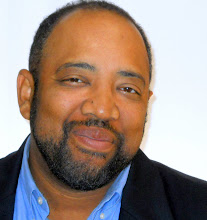We think of him as the man who always told the truth, but anyone who has pulled together witness statements after a crime or accident knows that the truth depends on perspective. Cronkite lived in a time when people didn't question the perspective of anchorman. (They were all men back then, and mostly still are. I'll give you a dime if you can name a national anchorman today and another dime if you can also name the cable news jockeys.)
As Jack Shafer writes on Slate, Cronkite had the luxury of reporting in a time when Americans began to turn to the tube for their news, the first great abandonment of the print media industry. Shafer argues, persuasively, that people trusted what they watched because it was they watched it, and no one wants to knowingly watch liars.
Cronkite lived when media bias was either accepted, ignored or, and I think this is more likely, when people thought a reporter's personal viewpoint would not bias a story. Sort of the journalist equivalent of physics before the uncertainty principle: you could report on a story as a passive prism.
That cozy relationship didn't work for politicians because sometimes they had to twist facts to start a war or avoid charges of adultery. In these cases, it was and still is easier to stab the messenger than dispute the facts.
Cronkite also operated under the laughably quaint federal Fairness Doctrine, which as Shafer describes it:
The doctrine required broadcast station licensees to address controversial issues of public importance but also to allow contrasting points of view to be included in the discussion. One way around the Fairness Doctrine was to tamp down controversy, which all three networks often did.Honest news programs, and the Sunday morning spinning talking heads shows, still operate under this principle, which has one great flaw: sometimes one side is flat out wrong. I'll leave it to you to supply your own examples.
Today, we watch news looking for a media bias. But for the most part, we only watch shows that already agree with our world view, confirming what we think we know about the world but not illuminating it.
The lens we use to view the world reveals more about us than it does about the world. In this age of social media, where everyone with a computer is not only a consumer of news but a potential creator, let us hope that we are not looking at the world through the narrow end of a telescope, but are using social media as a powerful version of the Hubble Telescope to look at an expanding universe, not a smaller one.




No comments:
Post a Comment